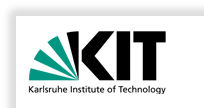Přemysl Brada (University of West Bohemia in Pilsen, Czech Republic)
Ivana Černá (Masaryk University, Czech Republic)
Yanja Dajsuren (Eindhoven University of Technology, Netherlands)
Antinisca Di Marco (Università dell'Aquila, Italy)
Petr Hnetynka (Charles University in Prague, Czech Republic)
Samuel Kounev (University of Würzburg, Germany)
Markus Lumpe (Swinburne University of Technology, Australia)
Daniel Menasche (UFRJ, Brazil)
Diego Perez Palacin (Politecnico di Milano, Italy)
Dorina Petriu (Carleton Univesity, USA)
Nadia Polikarpova (Massachusetts Institute of Technology, USA)
Ralf Reussner (Karlsruhe Institute of Technology, Germany)
Cristina Seceleanu (Mälardalen University, Sweden)
Catia Trubiani (Gran Sasso Science Institute, Italy)
Steffen Zschaler (King's College London, UK)




